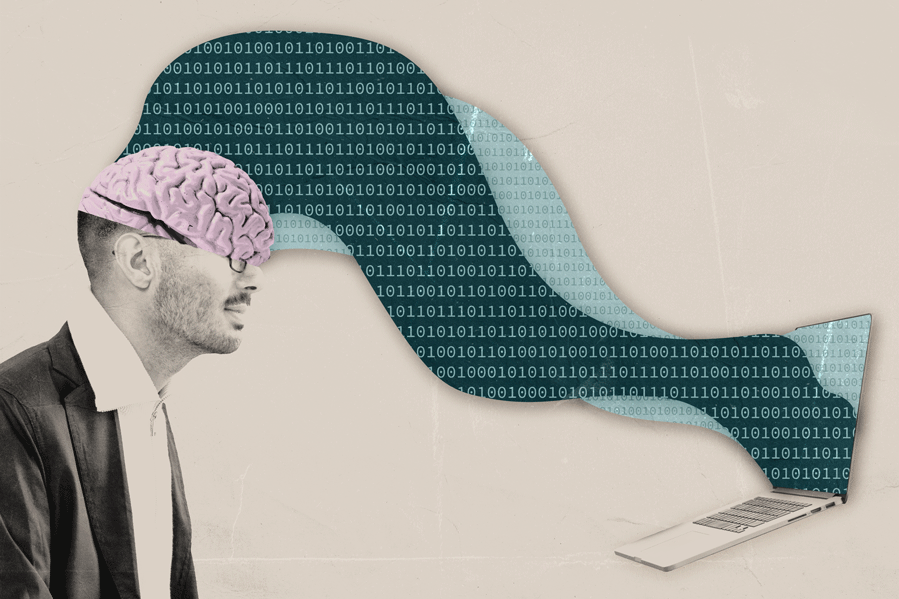
Kaiden Chandler
The AI Ready program will provide AI education to Ithaca College faculty and staff. The program offers monthly virtual session on AI in private education. (Photos via Pexels)
As artificial intelligence continues to be integrated into higher education, Ithaca College is partnering with the Council of Independent Colleges to offer the AI Ready program to provide AI education to faculty and staff. The program offers monthly virtual sessions on AI in private higher education throughout the 2025-26 academic year. The courses are free for faculty and staff, but the college paid the CIC $2,000 to enroll.
In Fall 2024, President La Jerne Cornish announced the Presidential Working Group on AI to help integrate AI use at the college through Spring 2025. By joining AI Ready, faculty and staff can attend one workshop a month, including Senior Leadership Decisions and Developments, Retention and Student Success, and Hyper-Personalized Learning with AI, which cover a range of topics for different faculty and staff interests.
Research shows that AI has a negative environmental impact. Every time generative AI is run, it takes 4-5 times more energy than a standard search engine. This uses a large amount of electricity and water, which takes up natural resources and drains energy stores.
Scott Doyle, director of energy management and sustainability at the college, said that even though AI use negatively impacts the environment, he enrolled in the AI Ready program to educate himself more on AI and its role in higher education.
“You do see both sides of AI because this is going to solve all of our problems, or this is also going to be totally detrimental to our entire operation in higher education,” Doyle said. “When I saw that offering, I wanted to be aware, not only for my own kind of operations, but also to make sure that we’re continuing to talk about the environmental impacts lockstep with advancing learning.”
Sabrina Sturgeon, the manager of networks at the CIC, said she has worked with faculty and staff from other institutions who were critical of AI because of environmental concerns. By the Spring 2025 sessions, Sturgeon said she noticed fewer people were concerned, and more people were curious about how they can use AI to create effective learning.
“We are about application, not implication,” Sturgeon said. “We know those ethical questions are important and we know that we need to answer them, but we have this philosophy here at AI Ready that we’re not going to answer those by just thinking about them. We need to actually get our feet wet and figure it out so we never let that idea of ‘this could be bad’ stop us.”
Michael Smith, a professor in the Department of History, said via email that he did not sign up for the program because of an overarching concern about AI’s environmental impact.
“AI is a metaphorical tsunami in our culture right now, except that instead of seeking higher ground, everyone thinks they can learn to swim in the wave,” Smith said via email. “I am deeply troubled by the generally uncritical embrace of AI, both at IC and in society more generally.”
Doyle said the concerns that some faculty and staff have about AI and its impact on the environment are valid.
“What we all need to do is understand the [environmental] impacts of AI better and figure out ways that we can mitigate those impacts,” Doyle said.
AI Ready is made up of two courses — Program 1 and Program 2. Adam Pryor, a senior advisor at the CIC, said Program 1, “All Campus Essentials,” is the broad scale overview of AI use, and Program 2, “Building & Launching Together,” is designed to build on the basics to create AI tools. IC is enrolled in Program 1. Pryor said the program is not a typical webinar because those who join will be actively working with AI and exploring its capabilities.
“One of the things we really pride ourselves on is that it’s not a ‘listen to me talk for an hour,’ kind of workshop,” Pryor said. “We fully expect people to actually be asking questions and playing with a [Large Language Model] in a side window the whole time.”
Narges Kasiri, professor in the Department of Management, said she had conducted research with faculty and staff on AI use and noticed hesitation.
“It’s good that we have the skeptical people, because they push,” Kasiri said. “And that brings more policies and guidelines. … We want to close this gap between skeptical people and enthusiastic people. If they move towards each other, at some point, they will reach a consensus.”
A 2025 Microsoft study reports that 79% of higher education educators in the United States said AI literacy is essential. Kasiri said she hopes AI will eventually be integrated into every course on campus.
“[Integration] is not easy, but these are good steps that we’re taking,” Kasiri said. “We are preparing our students for the real world and the real world is now integrated with AI, whether we like it or not. If we take that away from these students, it’s not stopping anything in the world, but making them less competitive in the workplace.”
Sturgeon said that even though there are reservations about the technology, humans will continue to adapt and use it to advance education just like they have with other technologies.“When personal laptop computers came into the world, campuses didn’t just say they were going to dig their heels in and not do that,” Sturgeon said. “The culture shifted. And nowadays, it’s almost a requirement for university students to have a laptop. … We as humans have the capacity to take this new piece of technology — AI — and rein it in and use it to advance our education. We’ve done it before.”